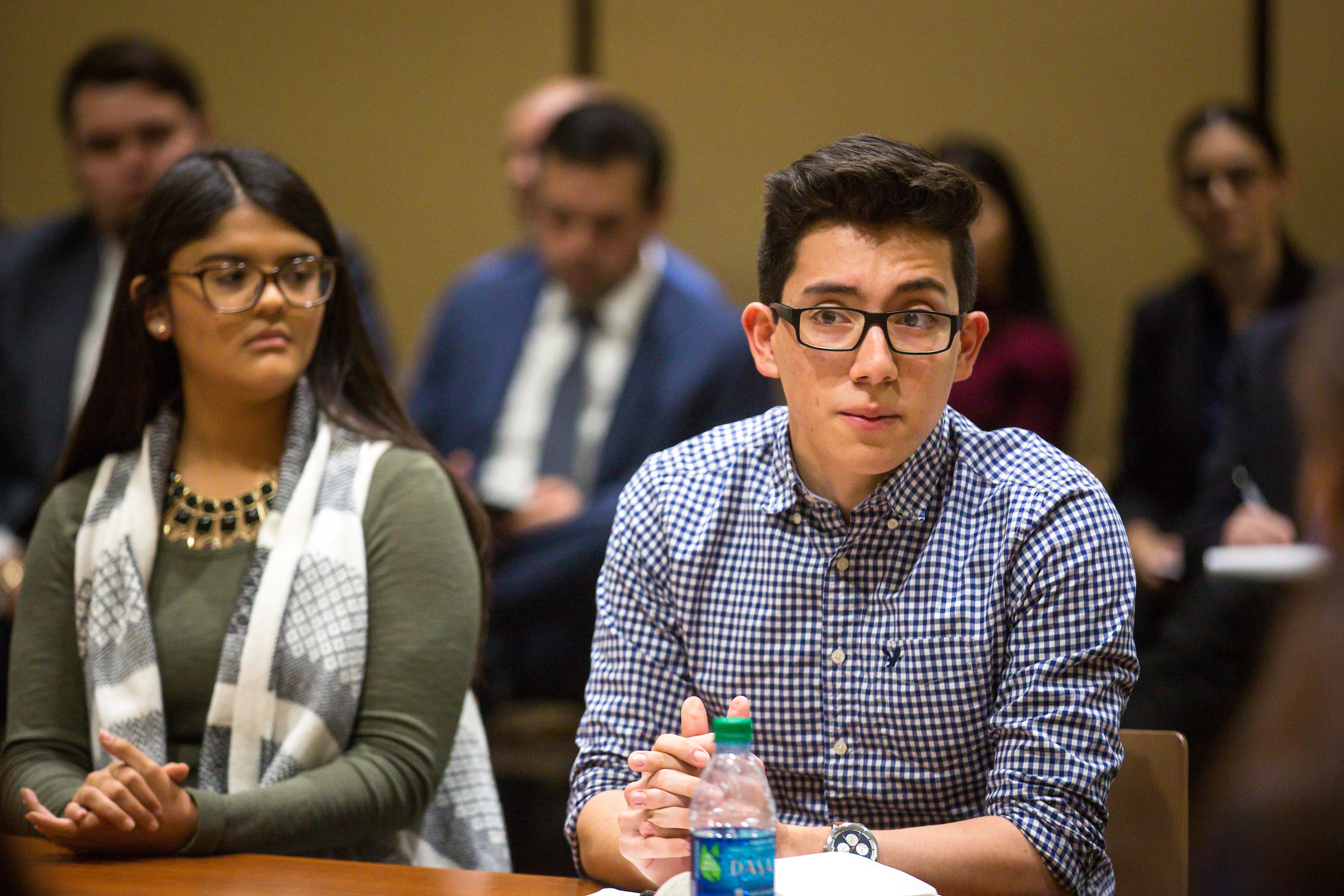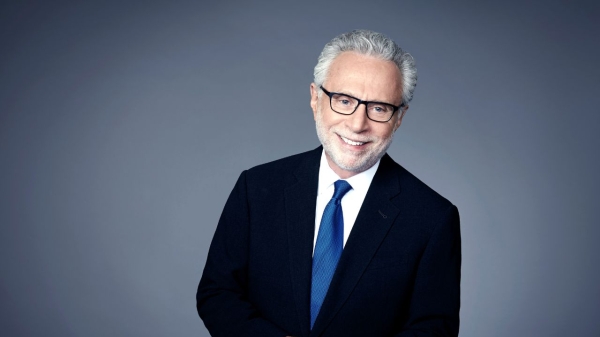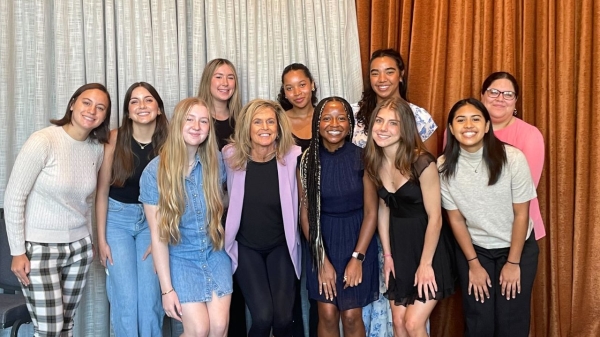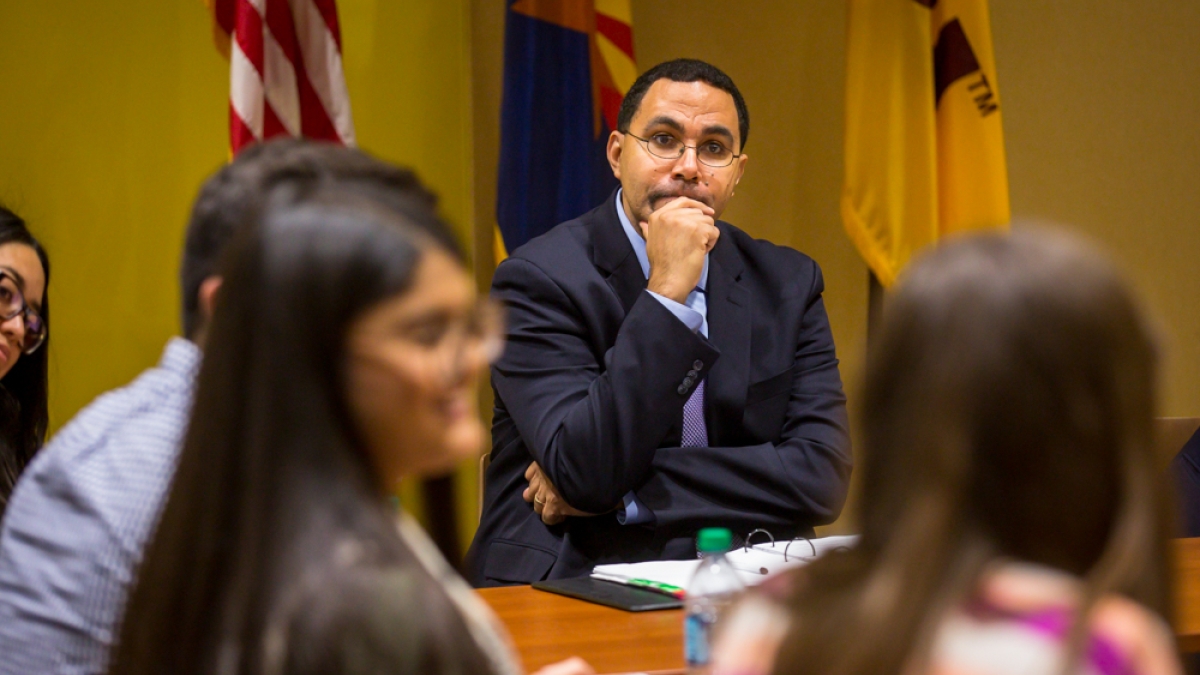The key to getting more students into college is extra help for parents, according to a roundtable led by U.S. Secretary of Education John King Jr. at Arizona State University on Thursday.
“Every school should be providing that quality counseling and advising, not just some schools,” King (pictured above) told a group of high school students and community leaders at ASU’s Downtown Phoenix campus.
King’s visit is the final leg of his “Opportunity Across America” tour, which he started in January to highlight successes of the education department during the Obama administration.
“President Obama has been focused on expanding long-term education access, and we have the highest high school graduation rate, 83 percent,” he said, adding that college financial aid and Pell grants have been expanded.
“Even with all that progress, we have a lot of challenges. We have big equity challenges. African-American and Latino students are more likely to attend schools where you can’t take AP or IB (international baccalaureate) or dual-enrollment classes,” he said. “Students are graduating from high school not ready for college or careers.
“From afar, I can see that Arizona is not making the investment it should be in K-12 education and higher education.”
The high school students at the roundtable said that support from counselors and their parents is important in developing an attitude that college is possible and also in smoothing the way. But not everyone gets that help.

North Pointe Preparatory senior Henry Rosas discusses his motivation in school at an educational roundtable Thursday on the ASU Downtown Phoenix campus. Photo by Charlie Leight/ASU Now
Henry Rosas, a senior at North Pointe Preparatory, a small charter school in northwest Phoenix, said his parents didn’t go to college, and he wished he had more resources.
Rosas said the Be A Leader program, run by a nonprofit organization that works to get more students into college, helped bridge the gap by providing him a mentor. He has applied to Harvard University.
“My path in life will be to make sure other students can achieve that.”
Brooklyn Johnson, a senior at ASU Prep in Phoenix, said her counselor sent emails and scheduled meetings with parents to demystify the college process.
“It’s physical meetings like that between educators and parents and then having them all on the same page that eliminates a lot of the miscommunication and the mystery that colleges have,” she said.
“Going into this process, I had no idea the amount of work that would be required to get me into college. But I know that support isn’t available to everyone.”
Alberto Olivas, the director of the Congressman Ed Pastor Center for Politics and Public Service at ASU, said that one way to reach parents is through the local business community, who can provide basic information to their employees.
“How do you navigate financial aid, and what’s the difference between private and public? These are basic things, but a lot parents don’t know where to get the answers,” he said.
Students whose families are undocumented are at a special disadvantage because their parents may fear contacting the school, according to Abril Gallardo, program coordinator for Living United for Change in Arizona, a grass-roots organization.
“They’re scared because the first thing they see when they pull into the parking lot is a police officer, and the first thing they’re asked for when they walk in is an ID,” she said.
Those families live under enormous stress, said Viridiana Hernandez, executive director at the Center for Neighborhood Leadership. She was at one time undocumented.
“Schools should become an information hub, but some require an Arizona ID to get in,” she said. “It’s not that the parents don’t want to get involved, it’s that they’re literally being shut out.”
Olivas said that there has been a shift in the attitude toward higher education that has eroded support for the Deferred Action for Childhood Arrivals Act — known as DACA or the “Dream Act.”
“It used to be that the public saw that it was good for the community to educate people. But now it’s, ‘Why should I pay for someone else’s education?’
“That’s why we lost support for the Dreamers, because the attitude is that they’re taking something they don’t deserve instead of, ‘What does it cost to take these people who can’t use their talents and ingenuity?’ ”
King said that students should become civically engaged to make sure that DACA is preserved in the administration of Donald Trump, who has indicated some support for the measure.
“It’s going to require school and community-based institutions to talk about the difference that DACA is making,” he said.
“There are a lot of challenges, but there is also opportunity for each us to be active around the things we care about. DACA has made a difference for a lot of student, and we have to make sure we preserve that.”
Top image: Education Secretary John King Jr. listens to high school seniors at an educational roundtable on issues related to the Latino community Thursday on the ASU Downtown Phoenix campus. The conversation included a discussion on DACA and DAPA (Deferred Action for Parents of Americans), what the Department of Education has done for students and what can the secretary and the department do to continue to push an agenda focused on equality and equity. Photo by Charlie Leight/ASU Now
More Law, journalism and politics

CNN’s Wolf Blitzer to receive 41st Walter Cronkite Award for Excellence in Journalism
Wolf Blitzer, the longtime CNN journalist and anchor of “The Situation Room With Wolf Blitzer,” will accept the 41st Walter Cronkite Award for Excellence in Journalism, Arizona State University has…

Cronkite School launches Women Leaders in Sports Media live-learn program
Women in a new sports media program at Arizona State University got a solid game plan from a sports veteran at an Aug. 20 welcome event.“Be humble, be consistent and be a solver,” Charli Turner…

ASU center to host the Pursuits of Education and Excellence Symposium
The Center for the Study of Race and Democracy (CSRD) at Arizona State University is introducing the Pursuits of Education and Excellence Symposium as part of an ongoing initiative to commemorate the…
